El Tatio Geysers – Highest in the World
In the last post from this epic trip to Chile with Adventures Abroad we ventured into the driest place on Earth outside of Antarctica, the Atacama desert and found a landscape that was almost surreal in its transcendent beauty. Day two in Atacama will feature a visit to the El Tatio geyser field which is the highest in the world and the largest in the Southern Hemisphere. Later in the day we will listen to the rocks whisper in the Valley of the Moon. It promises to be another astounding day in Chile, but there’s a catch – we need to get up really, really early to see the geysers because they only do their thing at daybreak. So let’s get moving.
El Tatio Geyser Field
There are only about a thousand geysers on this little planet and over eighty of them are found in one locale high up in the Atacama desert almost on the border with Bolivia. Collectively these make up the El Tatio geyser field which scientists believe may replicate conditions on Mars millions of years ago that might have once resulted in primitive life on that planet. So it’s not an exaggeration to say that visiting El Tatio is literally, out of this world.
Yesterday we broiled in the unforgiving sun as we trekked up the trail to Pucará de Quitor. This morning we need to be prepared for below freezing conditions as we make the ascent to 4,320 metres (14,170 feet) in time to arrive by 6:30 AM to watch the sun rise over the Andes and see the geysers come to life. It’s well over an hour drive from San Pedro to El Tatio and we are just one of a number of groups making our way there. From our previous visits to altitudes this high, I know that Alison gets quite affected by them, but this morning she is fine as is everyone else in the group.
There is a large parking lot which is already about half full, but it’s a very short walk to the geyser field from here and our local guide Valentin leads the way to a series of pathways that make their way between the geysers. There is literally no wind and you can hear the geysers bubbling and hissing.
Now is the time for a spoiler alert – this is not Yellowstone. There are no Old Faithfuls or other geysers that spout boiling water hundreds of feet into the air. The geysers here are tiny in comparison, seldom rising more than a few feet. What they lack in size they make up for in numbers. There is no single congregation of geysers in one place anywhere that is larger. Collectively they create a mystical landscape that is unlike anything I have ever walked through.
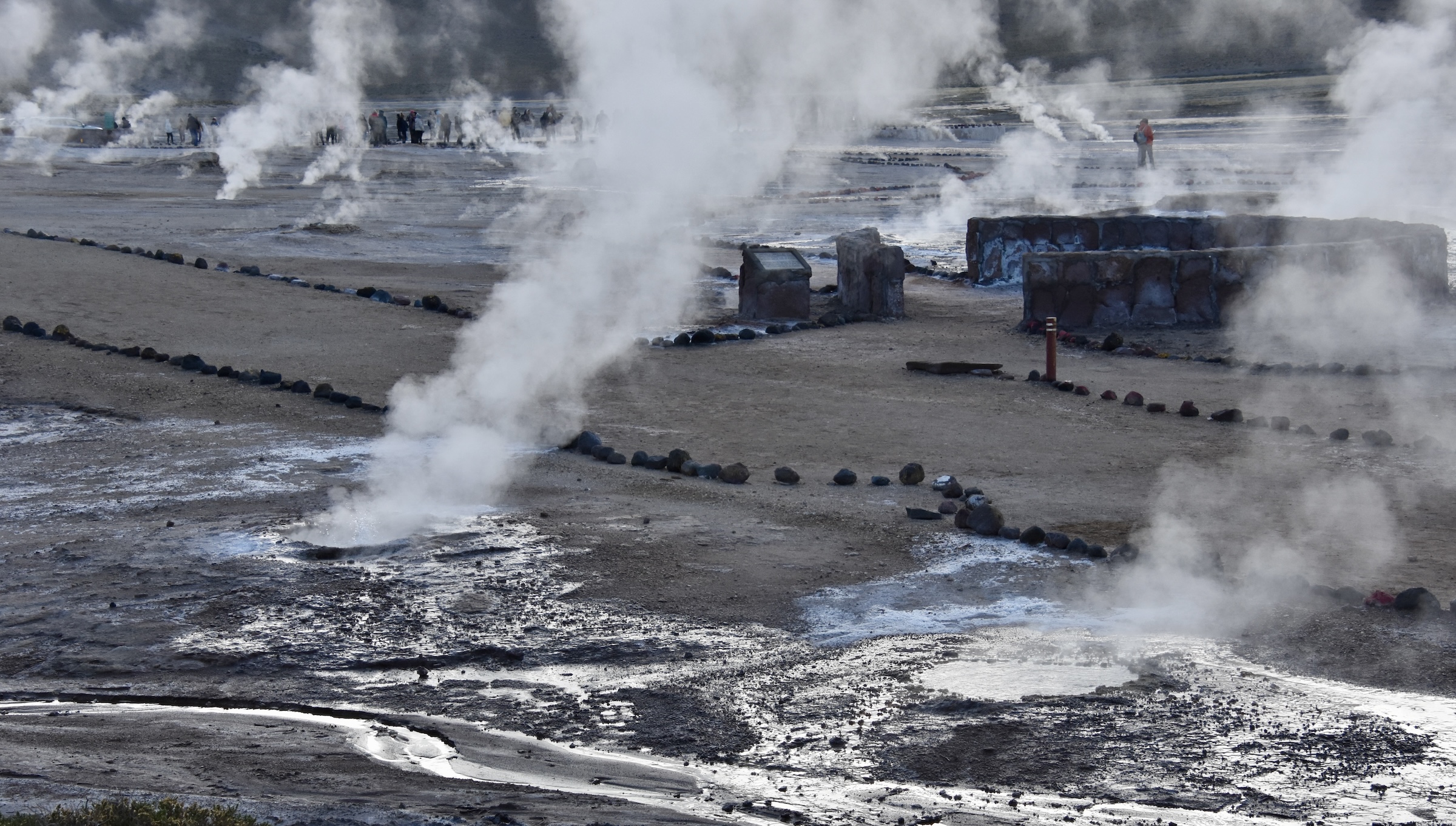
Despite their small size there are quite a variety of geysers – some just puff out steam, that looks like smoke from a distance.
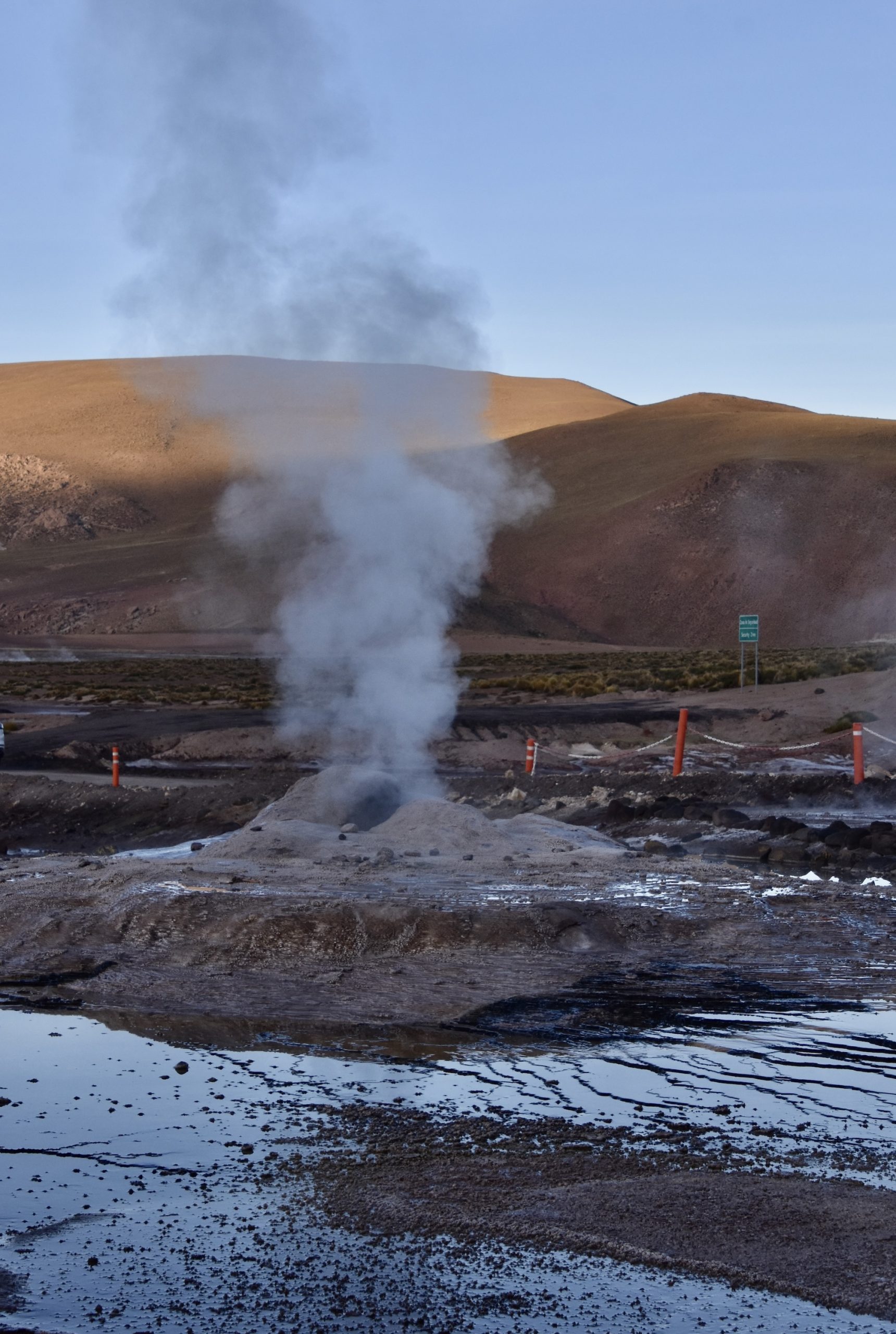
Others put out a constant stream of boiling water, which incidentally boils at only 88°C (190°F) at this altitude.
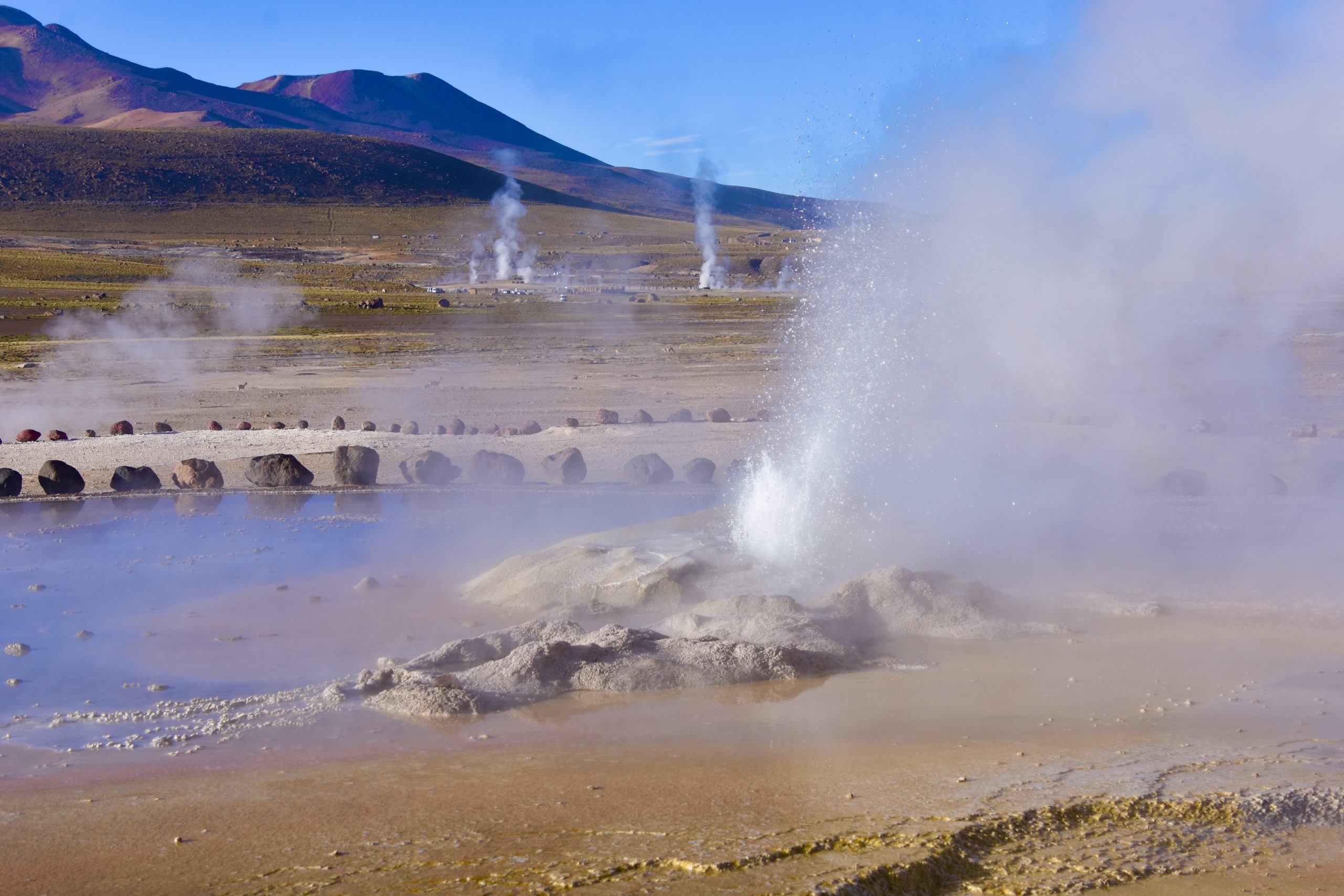
Some of the El Tatio geysers are quite colourful.
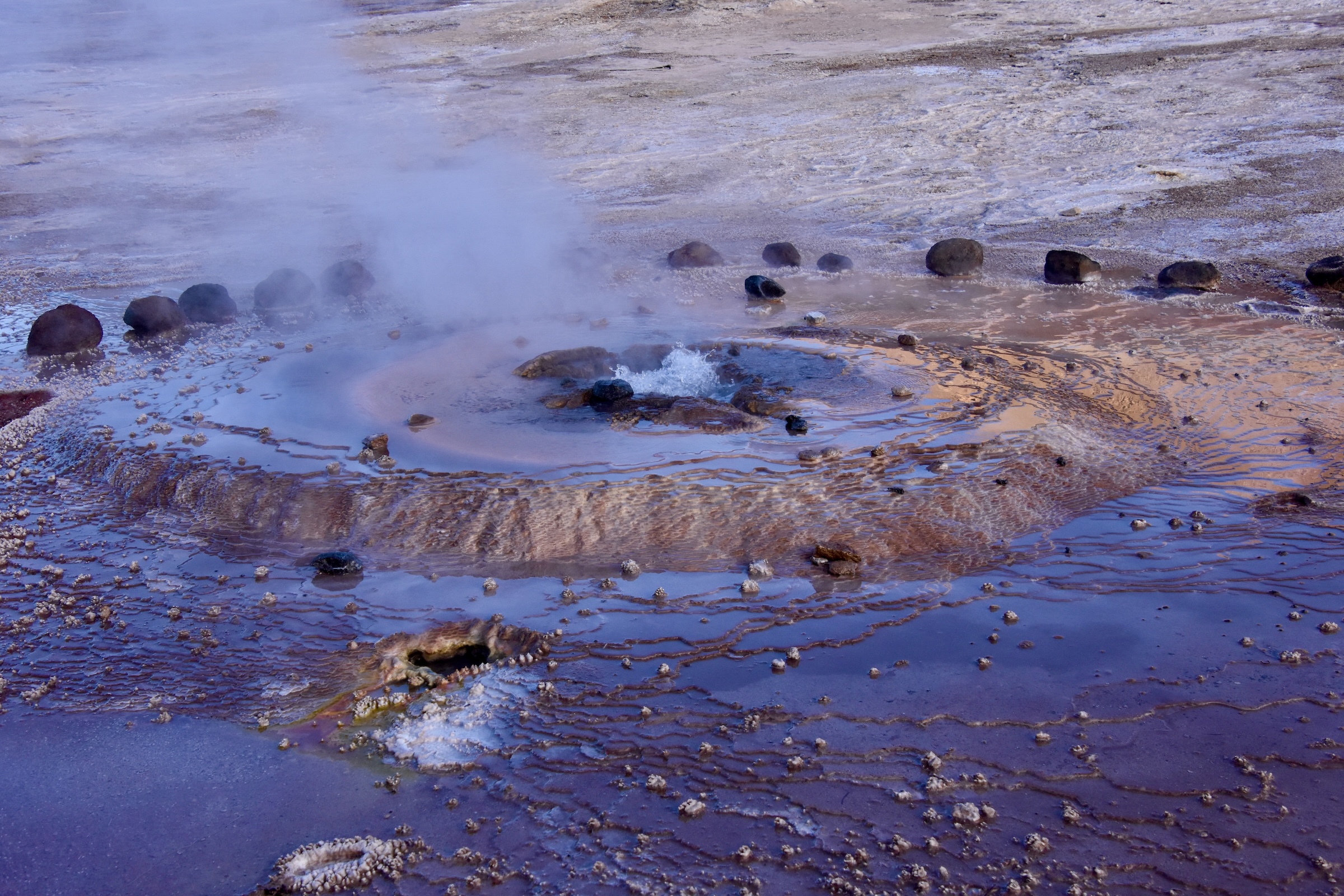
But what’s really the most interesting is the interplay of the morning light with the geysers as the sun crests the Andes.
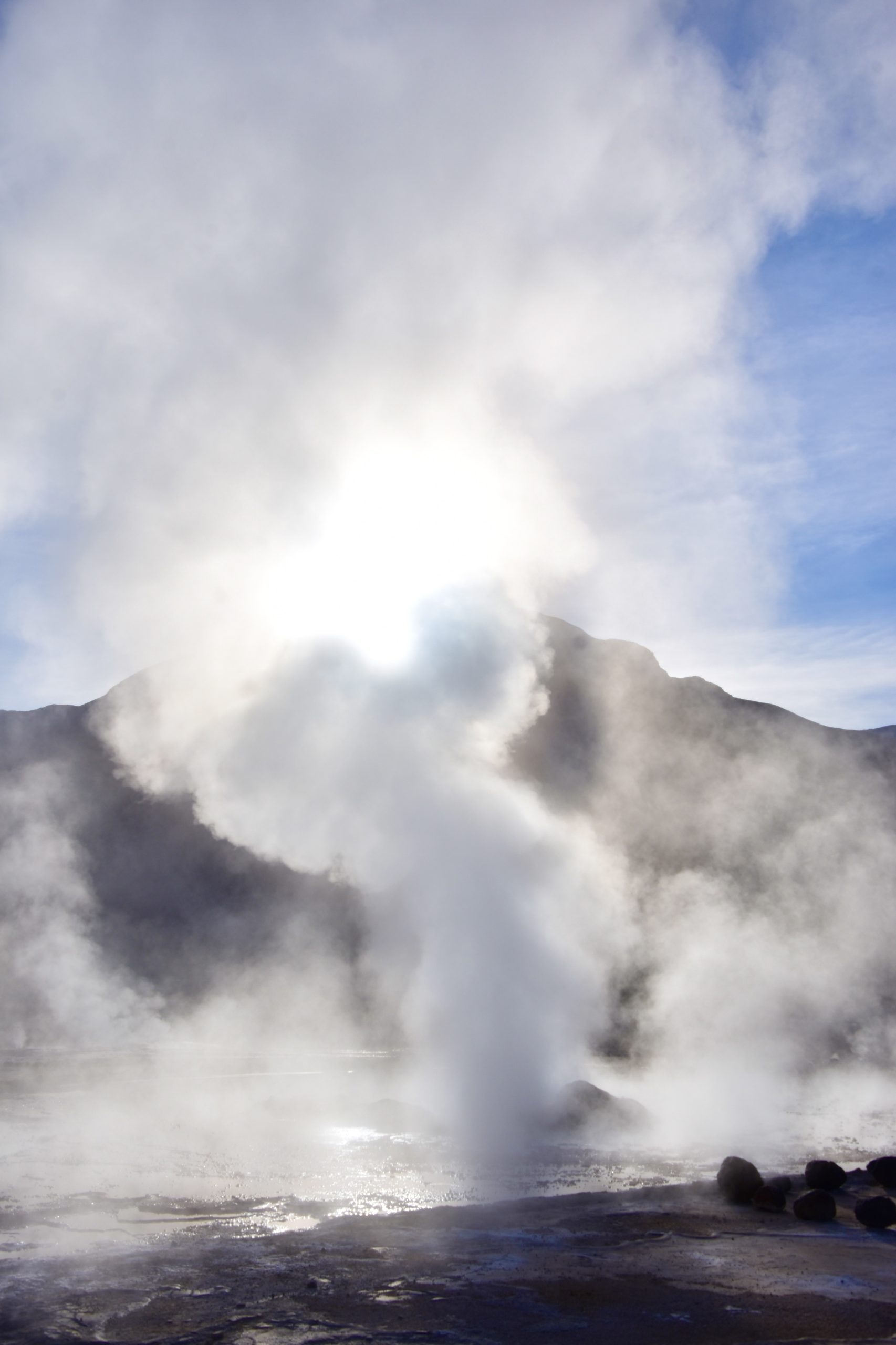
There is only a few minutes of what photographers somewhat paradoxically call ‘The Magic Hour’ and Chris and Valentin manage to line us all up for one of the most epic group shots I’ve ever been in on an AA tour.
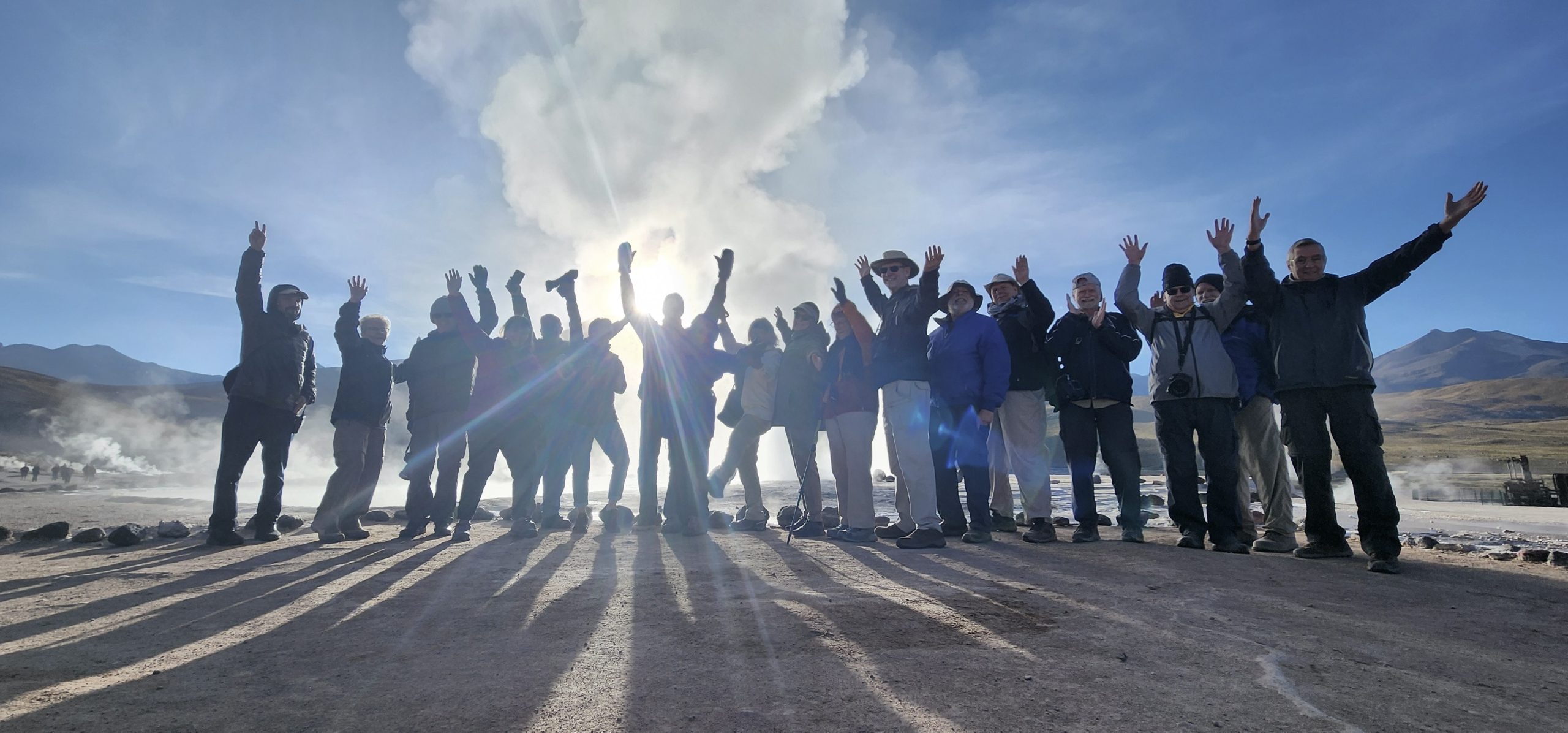
Soon the geysers at El Tatio begin to lose their steam and we get back in the bus and drive to spot high above them where we can get a better perspective of this phenomena as well as get a photo in this wondrous landscape.
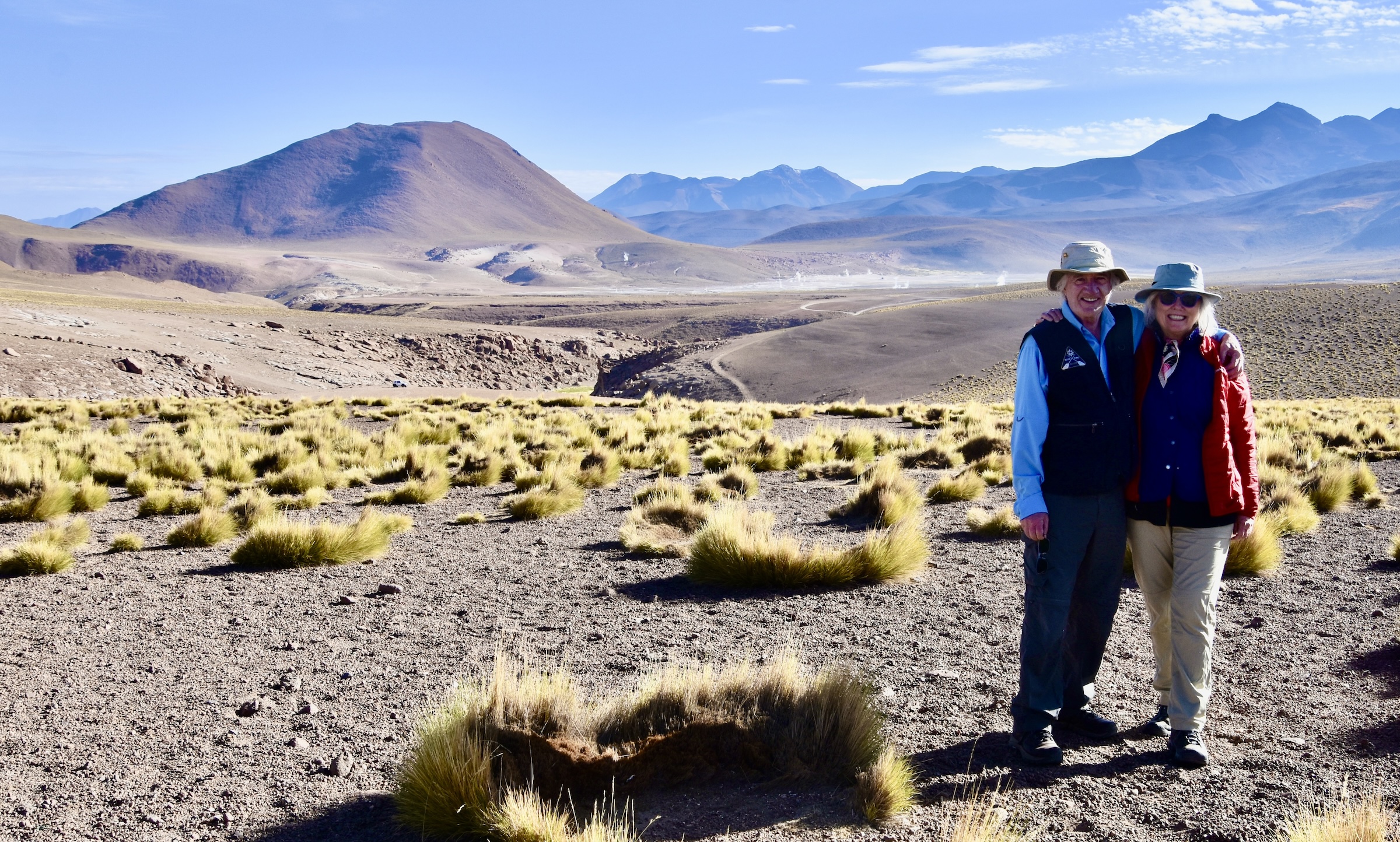
There are not only geysers to observe up here, but a herd of vicunas as well. Once endangered by overhunting, vicunas now thrive in the higher elevations of the Andes, 3,200 metres (10,500 feet) to 4,800 metres (15,700 feet). Although they are not a domesticated species like the alpaca and llama, they are still shorn for their wool which is the most expensive in the world. The Incan rulers wore vicuna garments as a symbol of their power and prestige and any commoner caught with vicuna wool would soon be headed to the sacrifice altar.
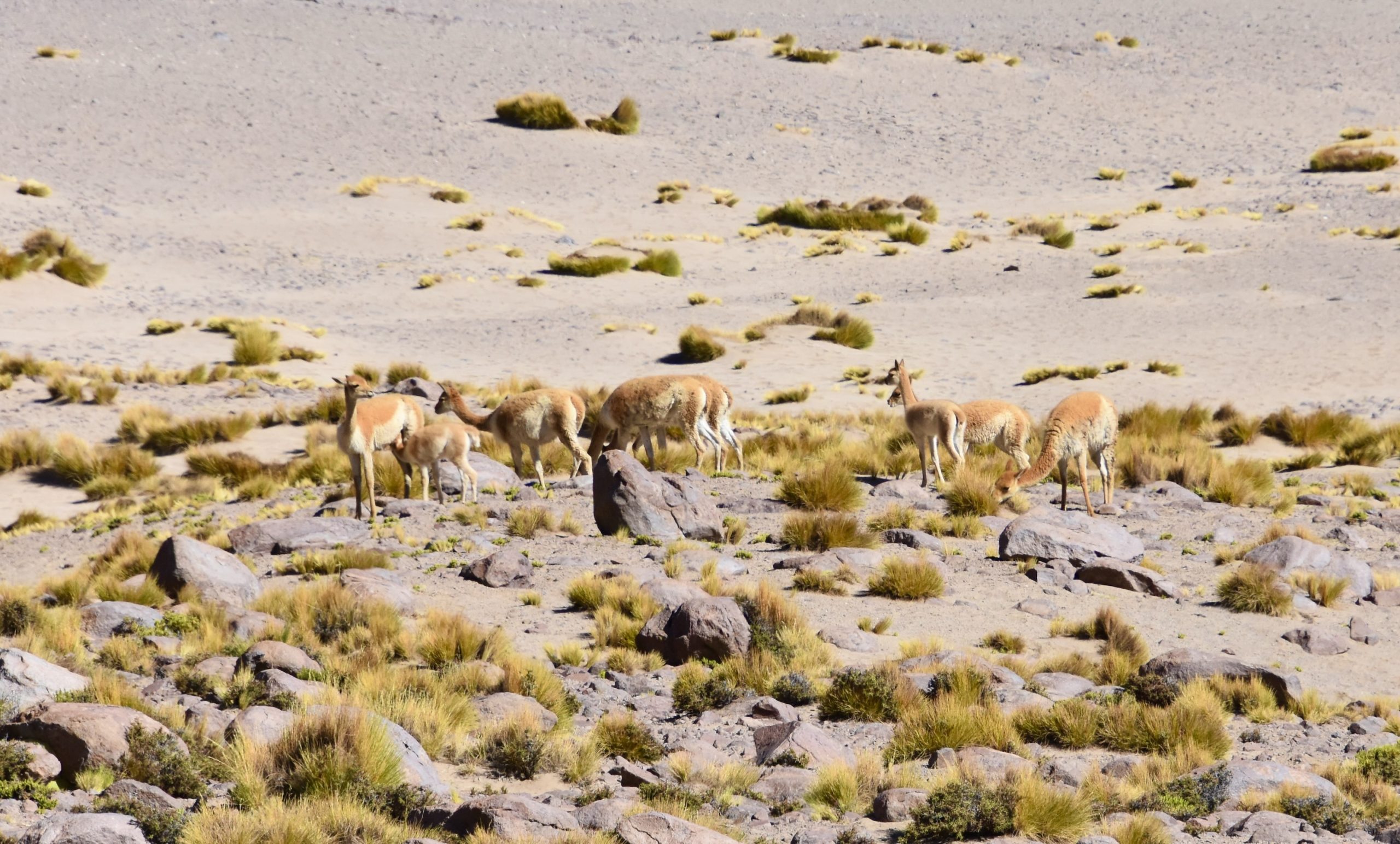
While we are photographing the dying El Tatio geysers and vicunas, Valentin and his helpers are preparing for breakfast in the Atacama desert.
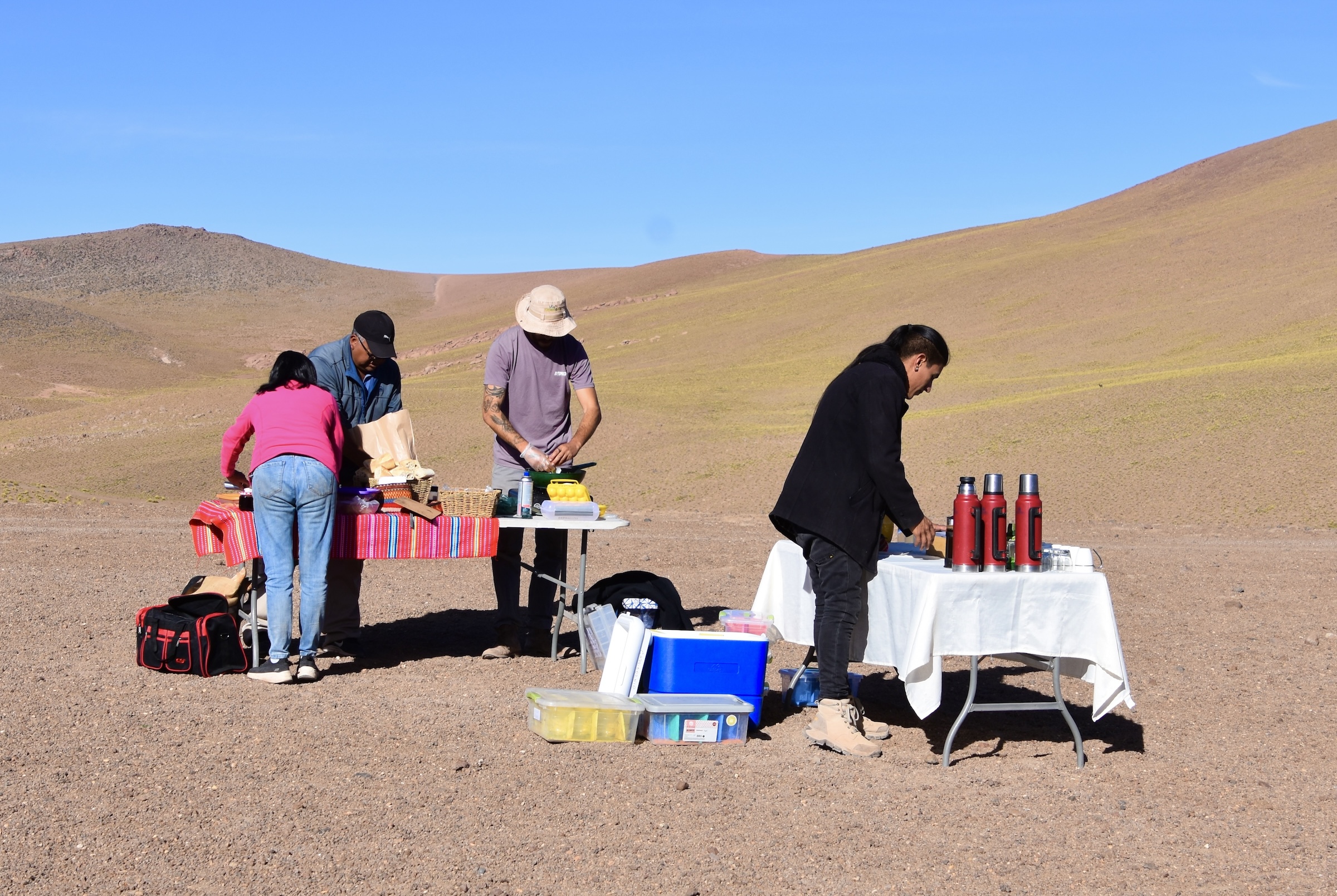
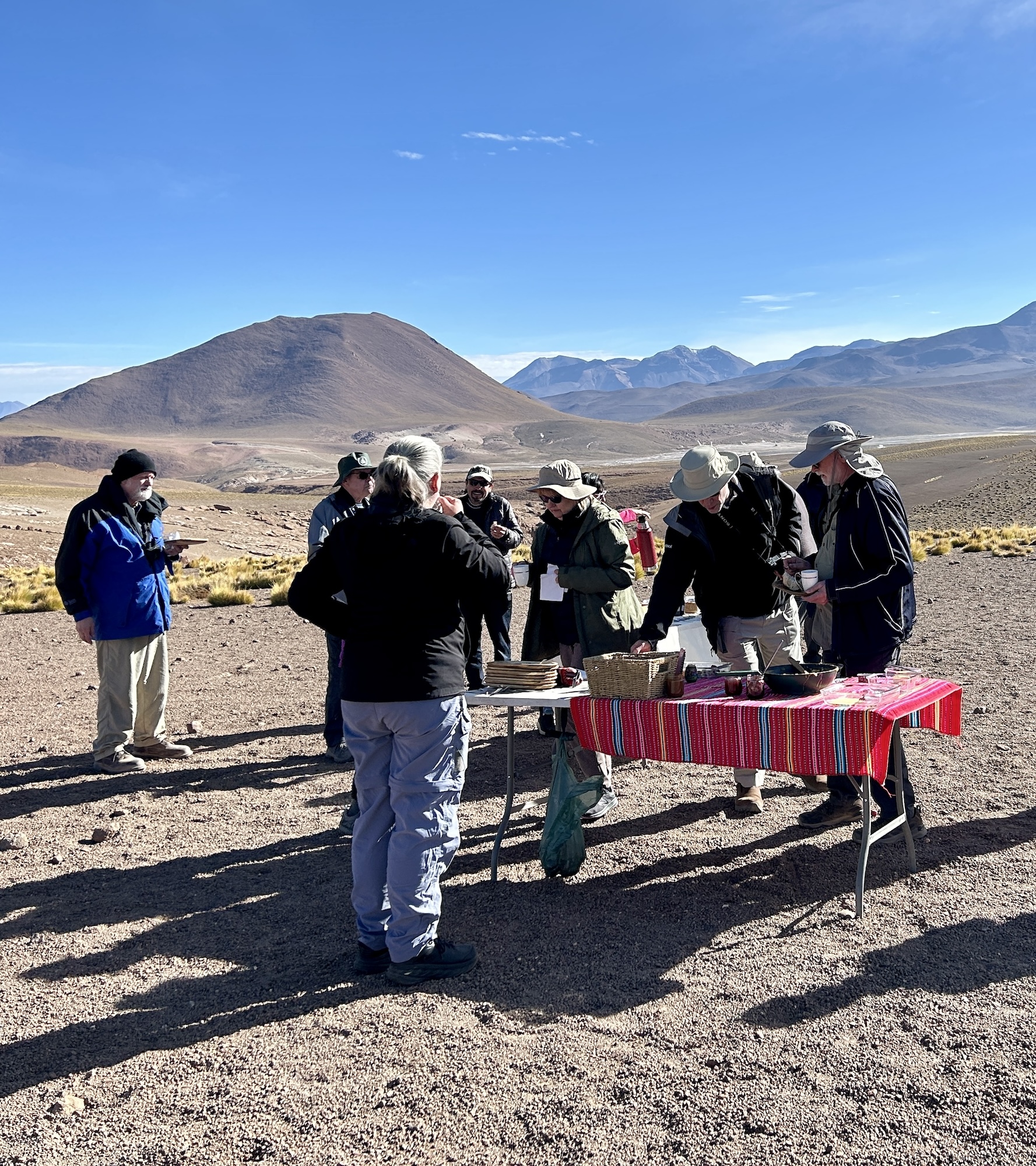
After loading up the breakfast gear we departed the El Tatio area and began our return to San Pedro de Atacama, but by a different route that provided us with another opportunity to see more flamingoes.
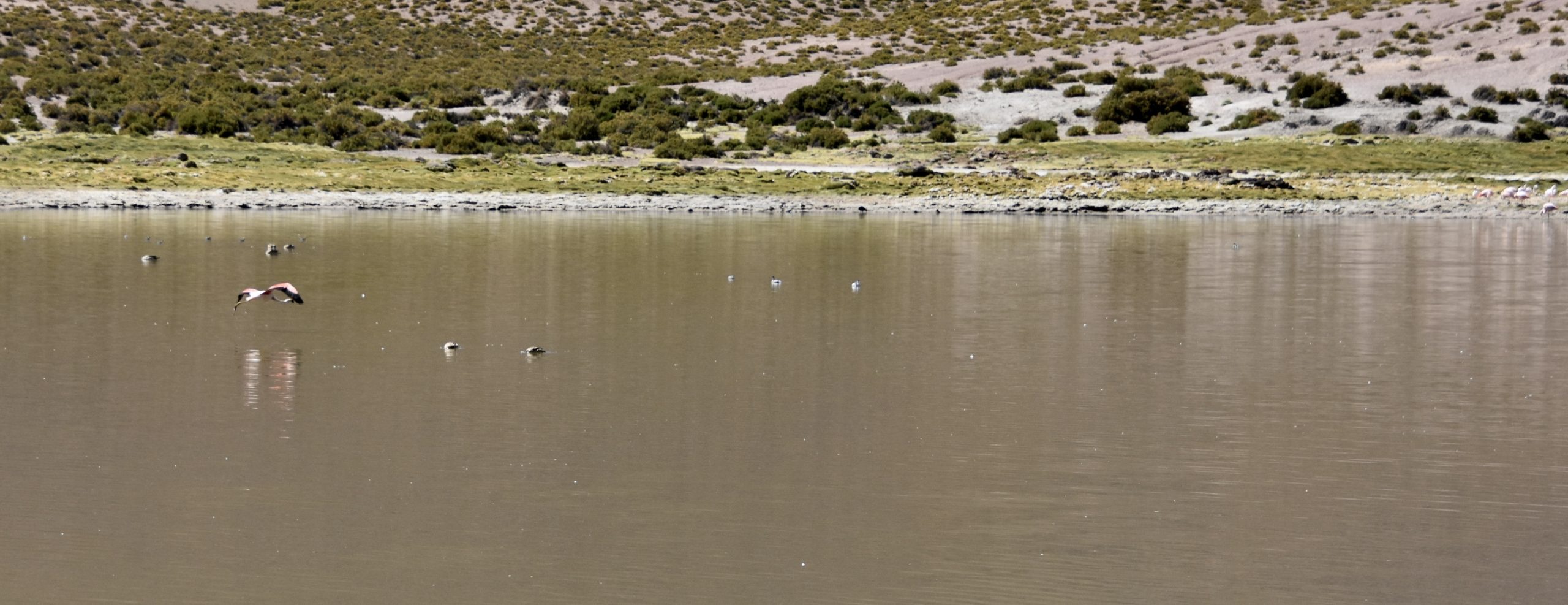
Now we have all seen flamingoes flying or more commonly dabbling with their upturned beaks, but I have never before seen them swimming. I always assumed that they stayed in very shallow water to feed, but not these Chilean flamingoes which are acting more like ducks than the Andean flamingoes we saw yesterday at Los Flamencos Nature Reserve. Another day, another new and amazing fact about birds I didn’t know.
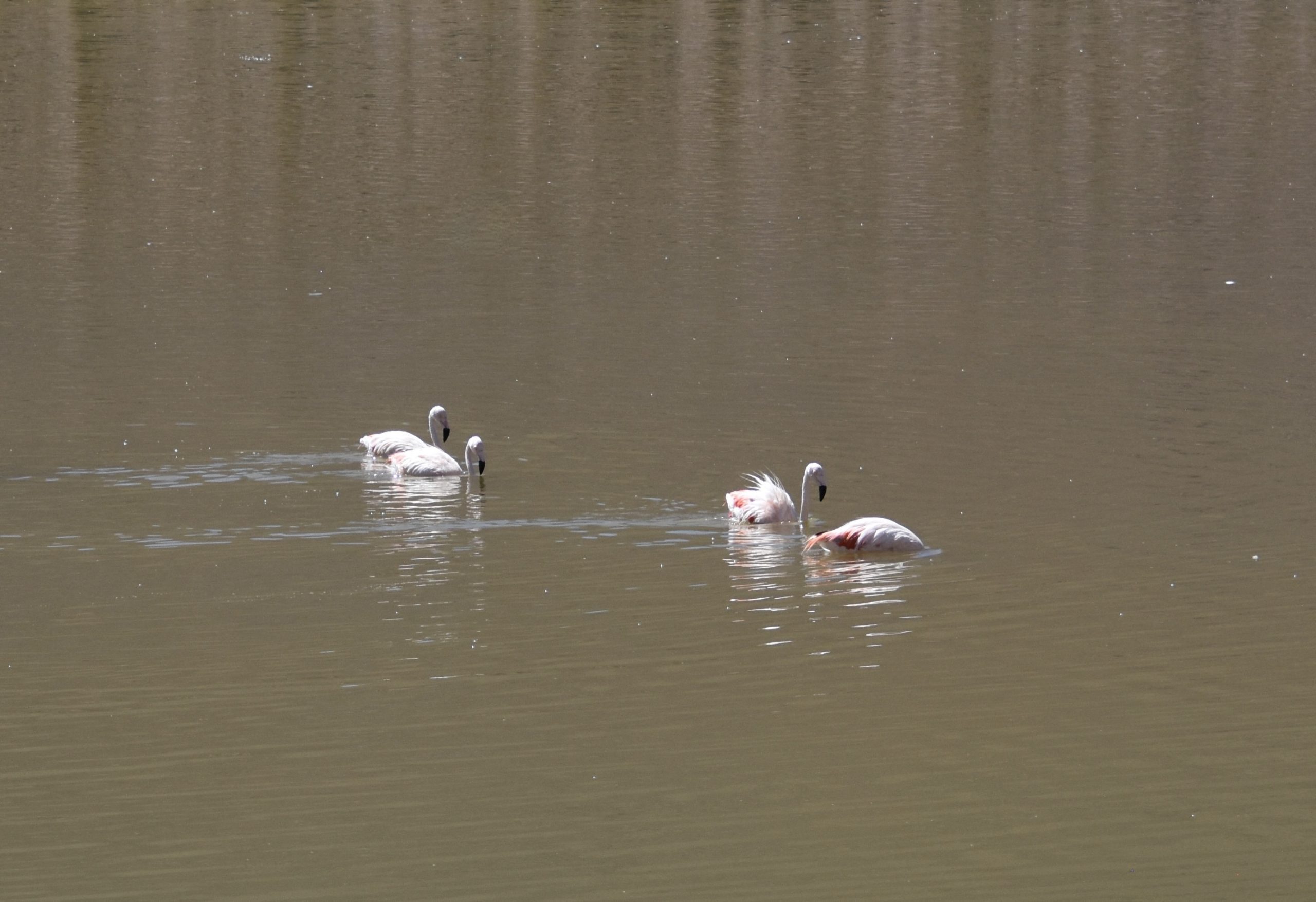
Around 10:00 we roll into the small hamlet of Machuco which reminds me of the Mexican villages often seen in spaghetti westerns. I can almost here the music from ‘The Good, the Bad and Ugly‘ playing as a I walk down the almost deserted street.
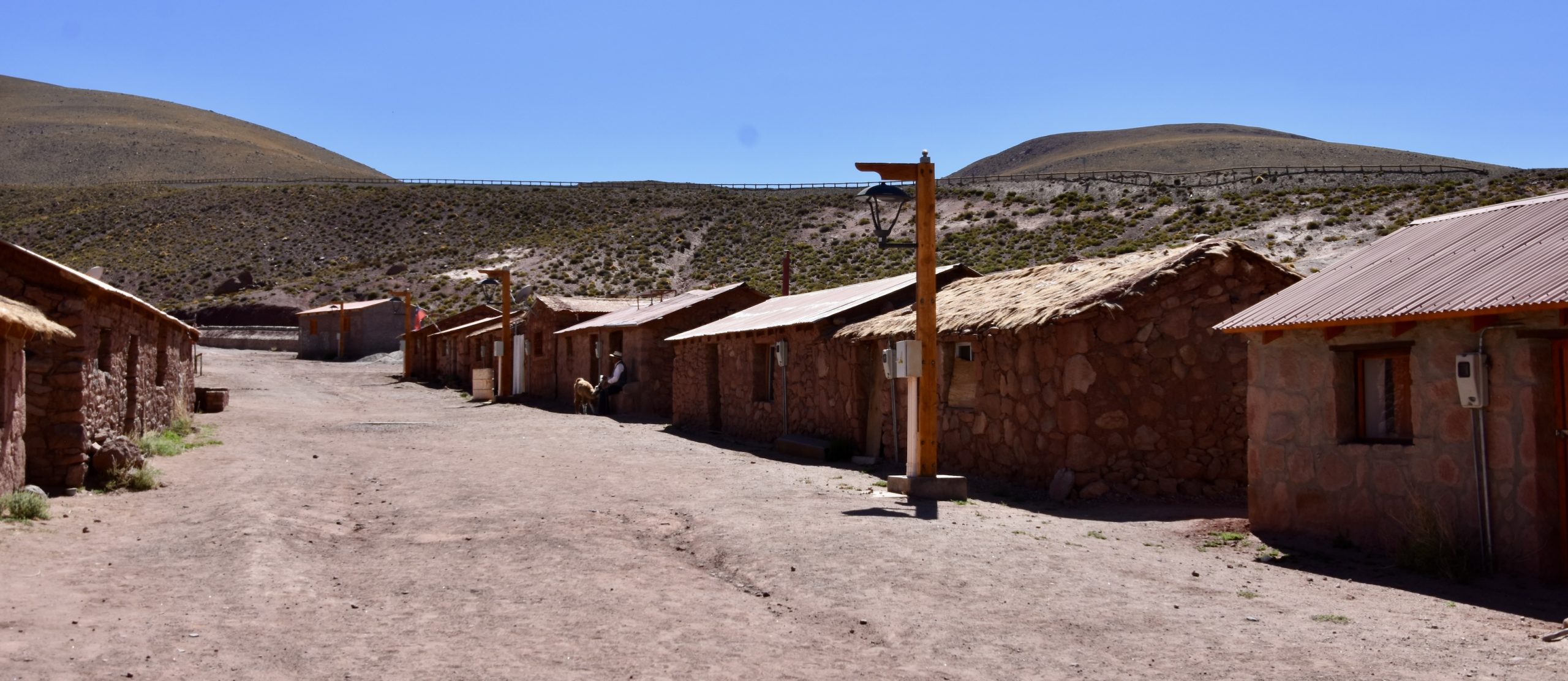
There is the church where the villagers will hide out when the bandaleros come to town.

However, instead of seeing a bad guy wielding a pistol, I see this hombre brandishing a baby bottle for his little llama. I guess I can let down my guard.
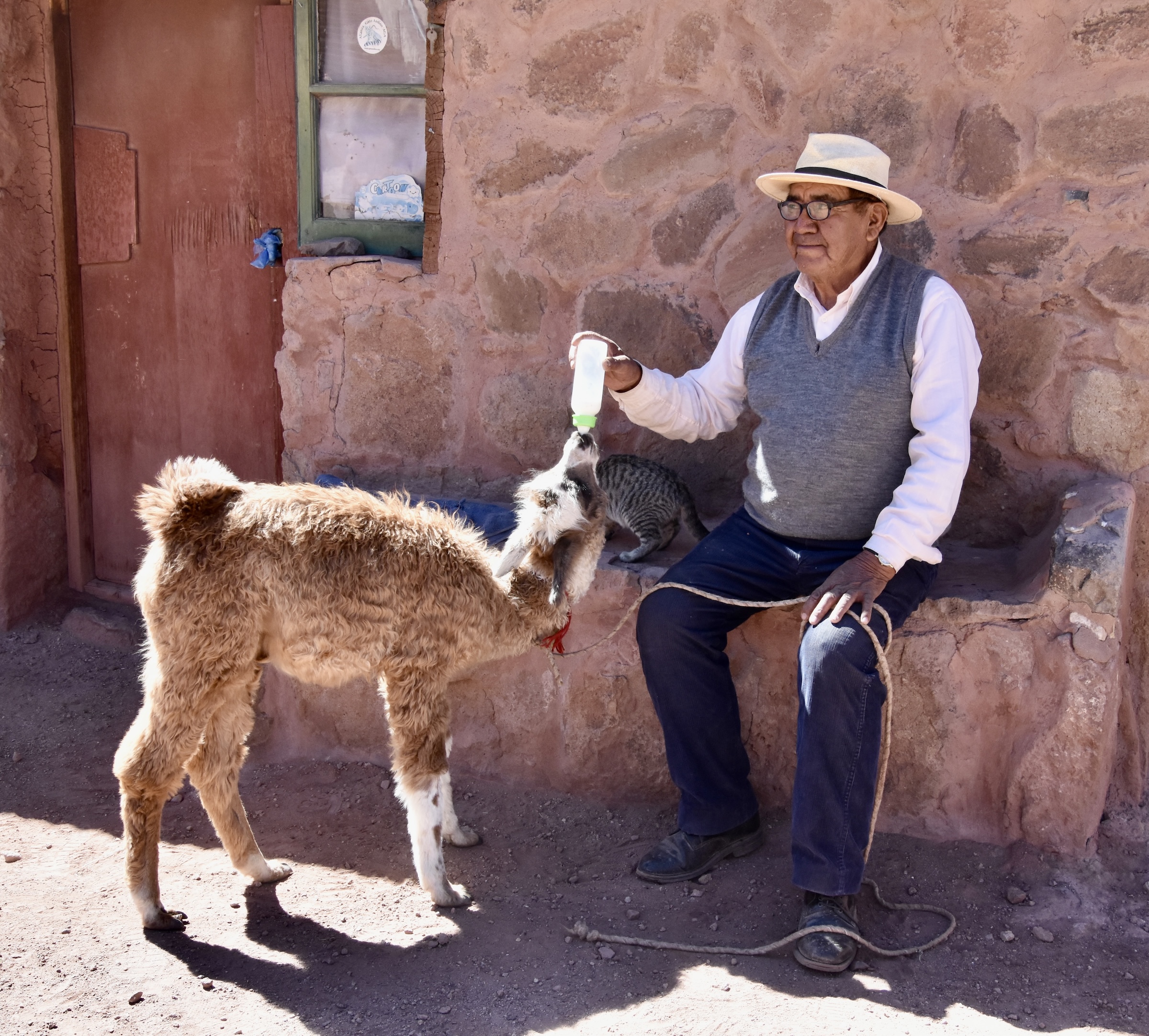
Speaking of llamas, here’s a guy preparing barbecued skewers of same which Chris assures me are very tasty.
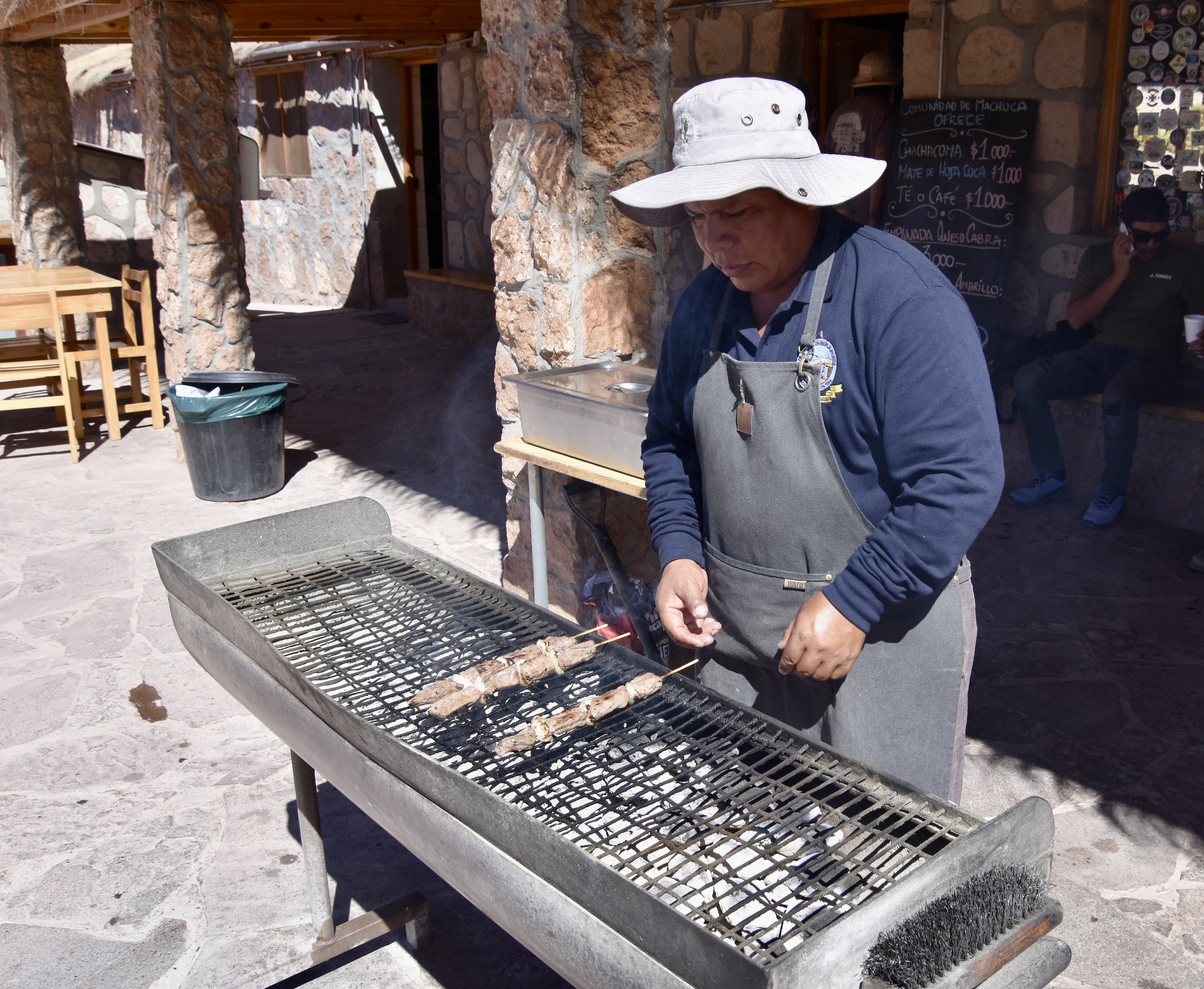
Putting thoughts of the little llama down the street out of my head, I buy one and Chris is right, it’s very tasty.
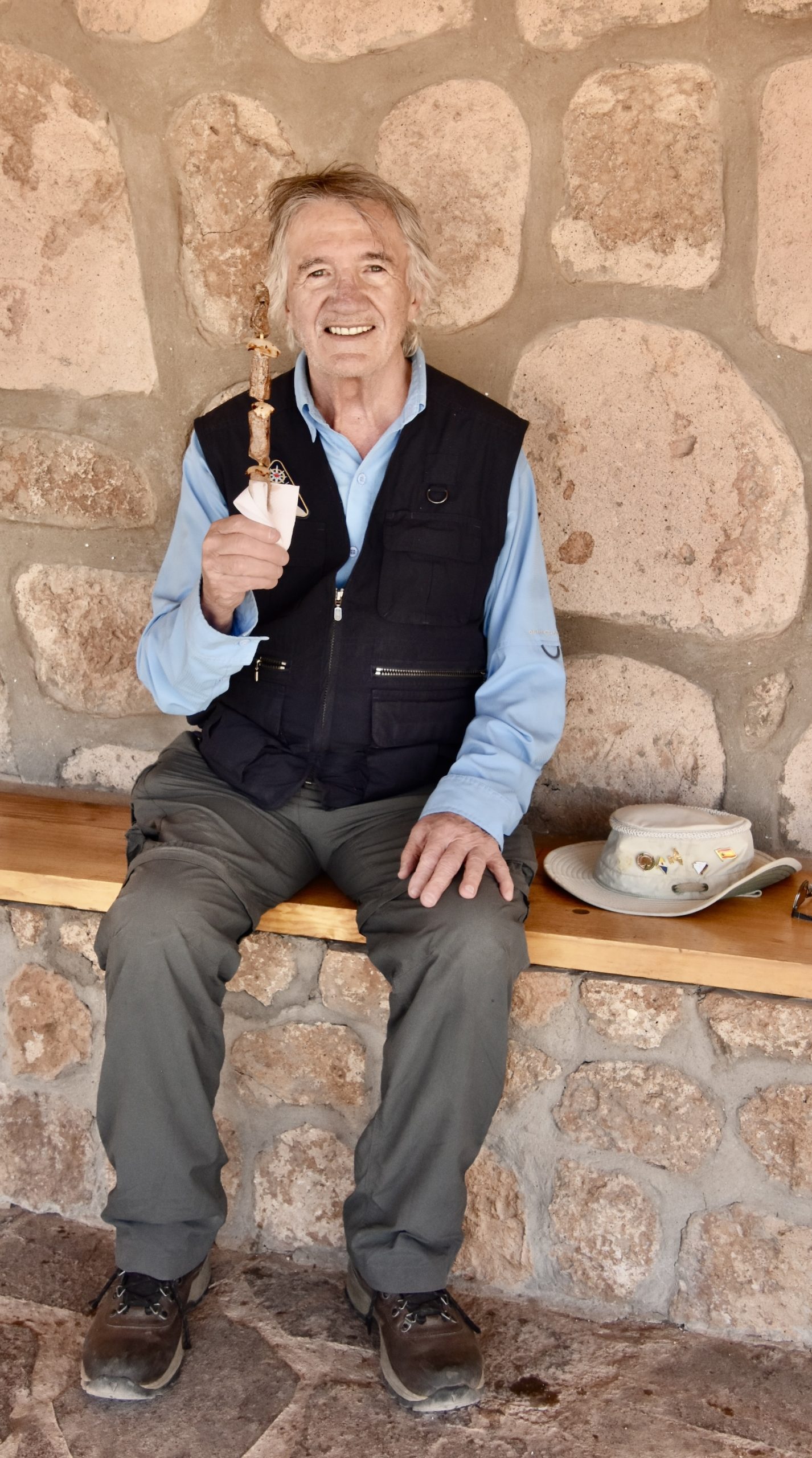
I notice that Chris didn’t get one and soon see the reason why. I mentioned in an earlier post that Chris is addicted to empanadas and must have a fix of at least one a day or he’ll go God knows what; I don’t want to find out. Since empanadas were not on the breakfast menu, like a moth to a flame, he is drawn inside.
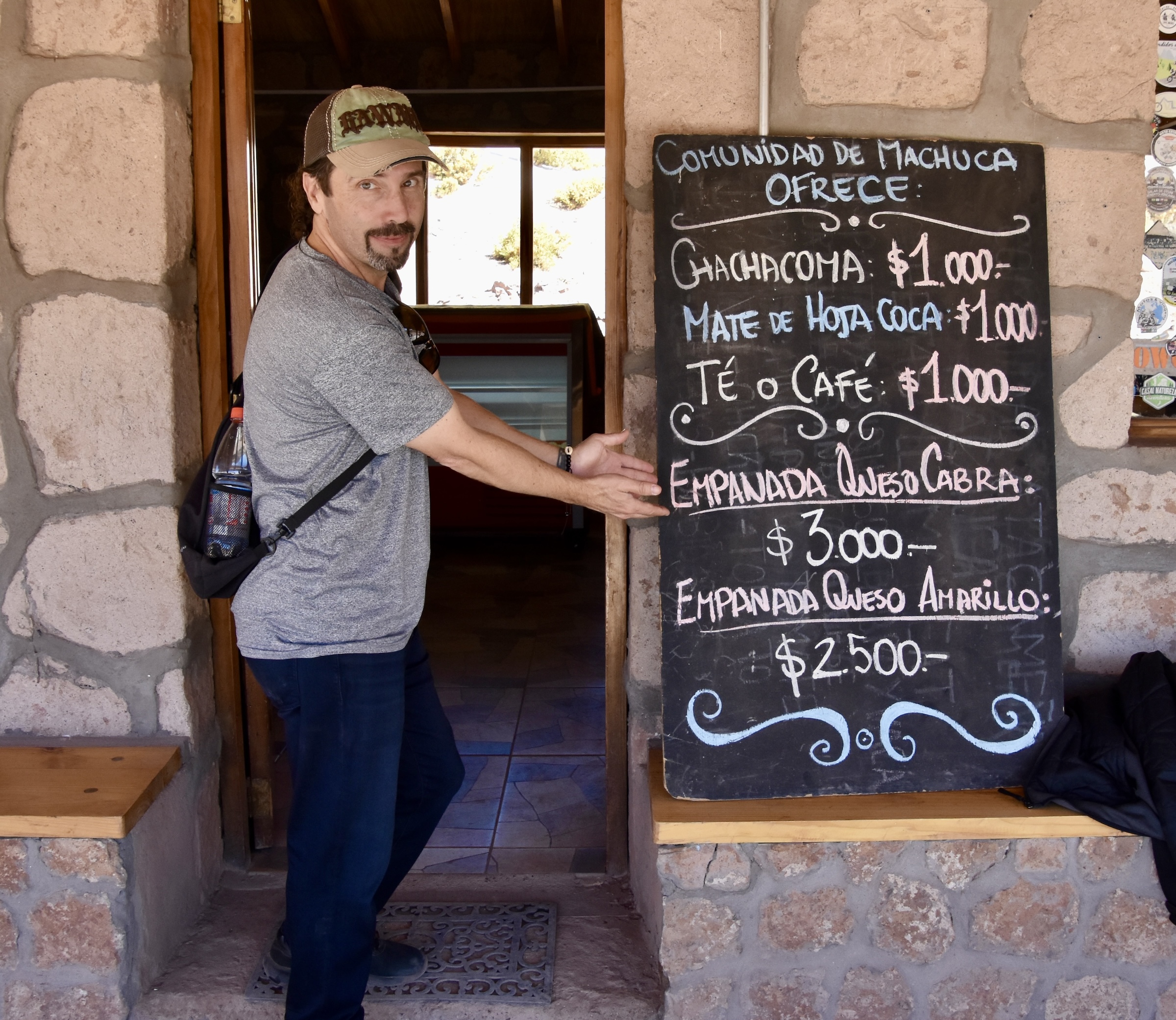
Not far from San Pedro de Atacama we stop for a shot of the aptly named Vulture Rock. It’s a forerunner of the geological wonders we will see later in the day when we visit the Valley of the Moon. For now we say goodbye to the El Tatio area and head back to the hotel for a well-earned siesta.
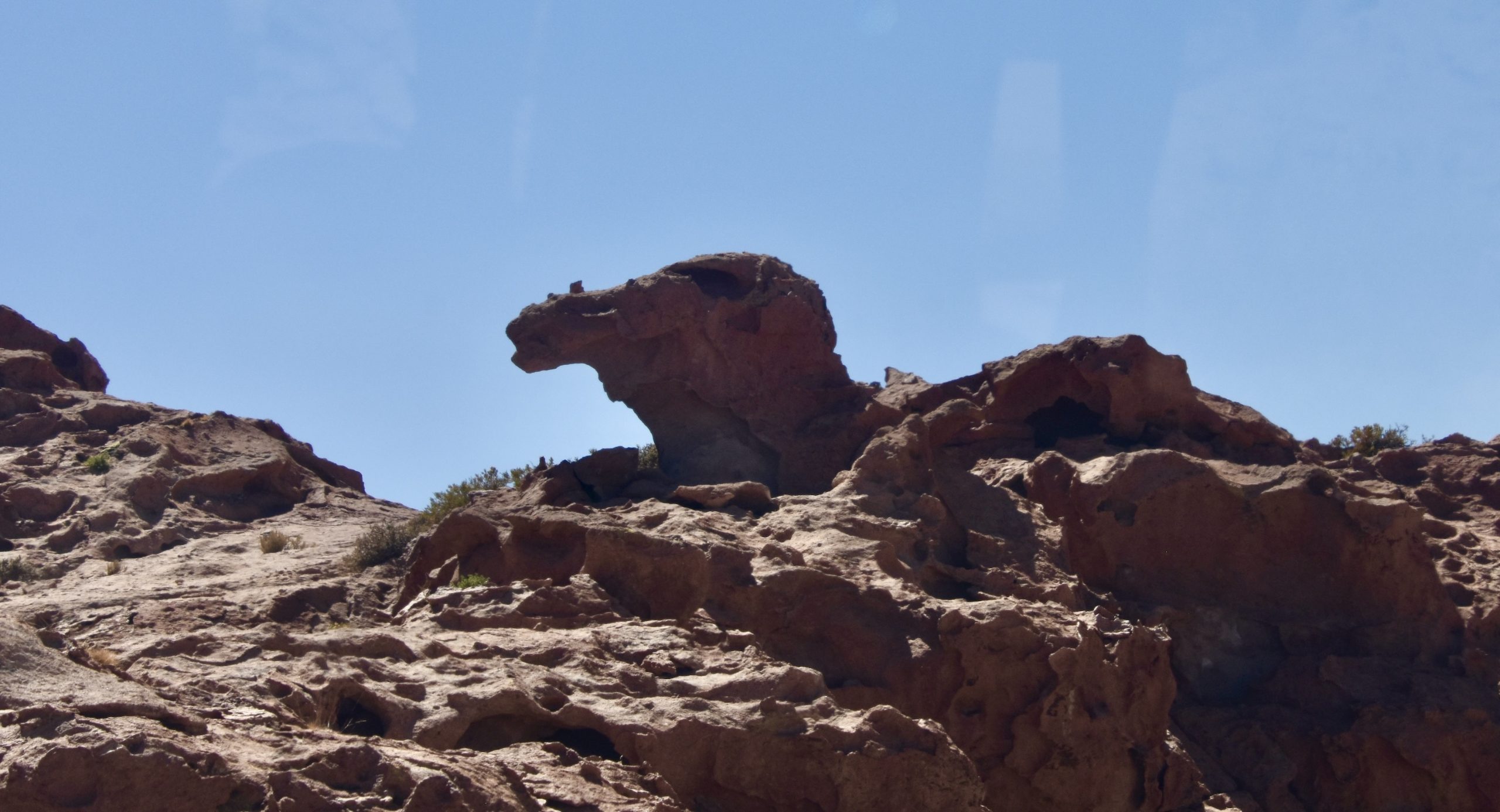
The Valley of the Moon
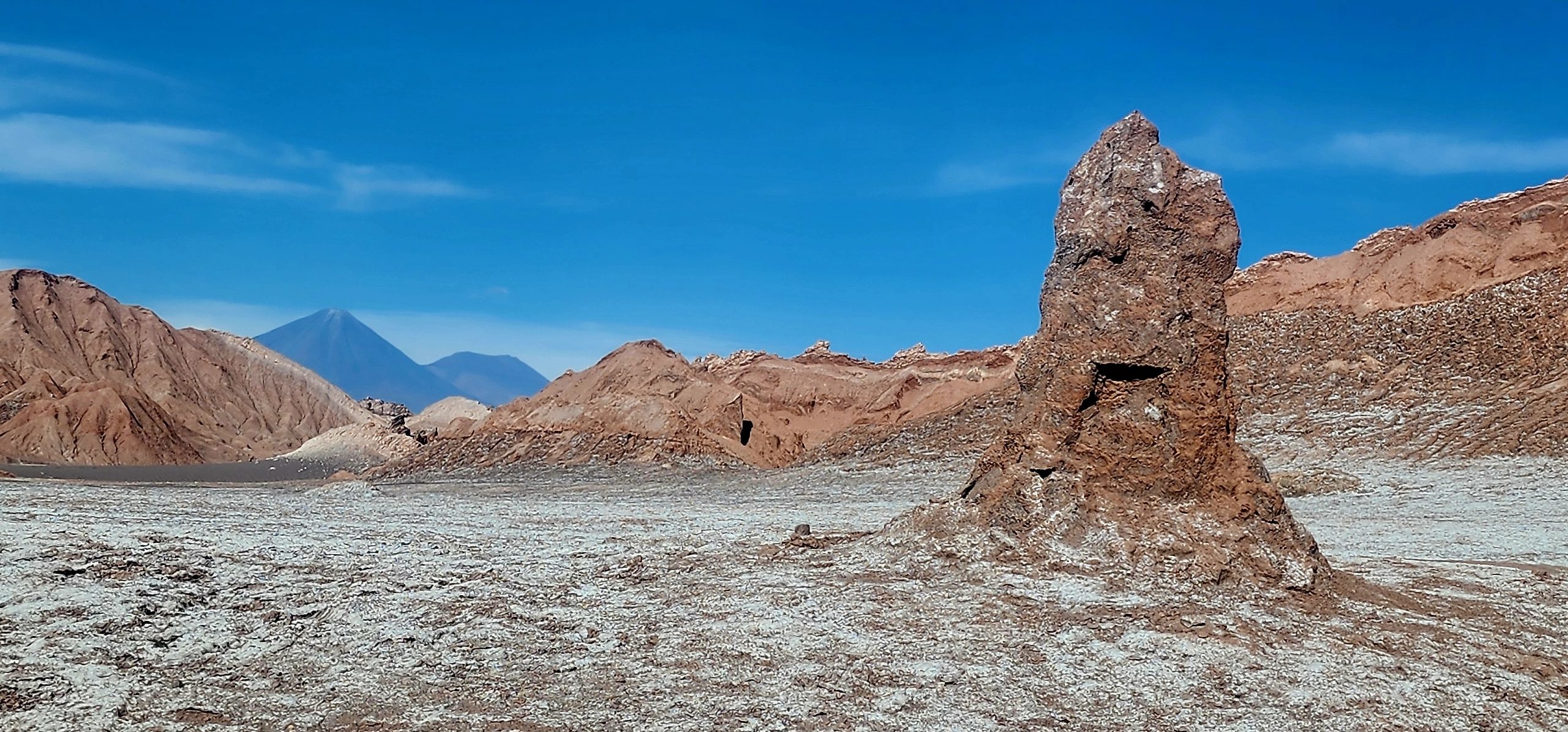
The Valley of the Moon is our last stop in the Atacama desert and presents yet another side of this unique landscape, with the photo above so much resembling the surface of Mars that the Martian Rover was tried out here before going into space.
The combination of wind and the water that no longer exists, have created some amazing looking formations that include sandstone ridges.
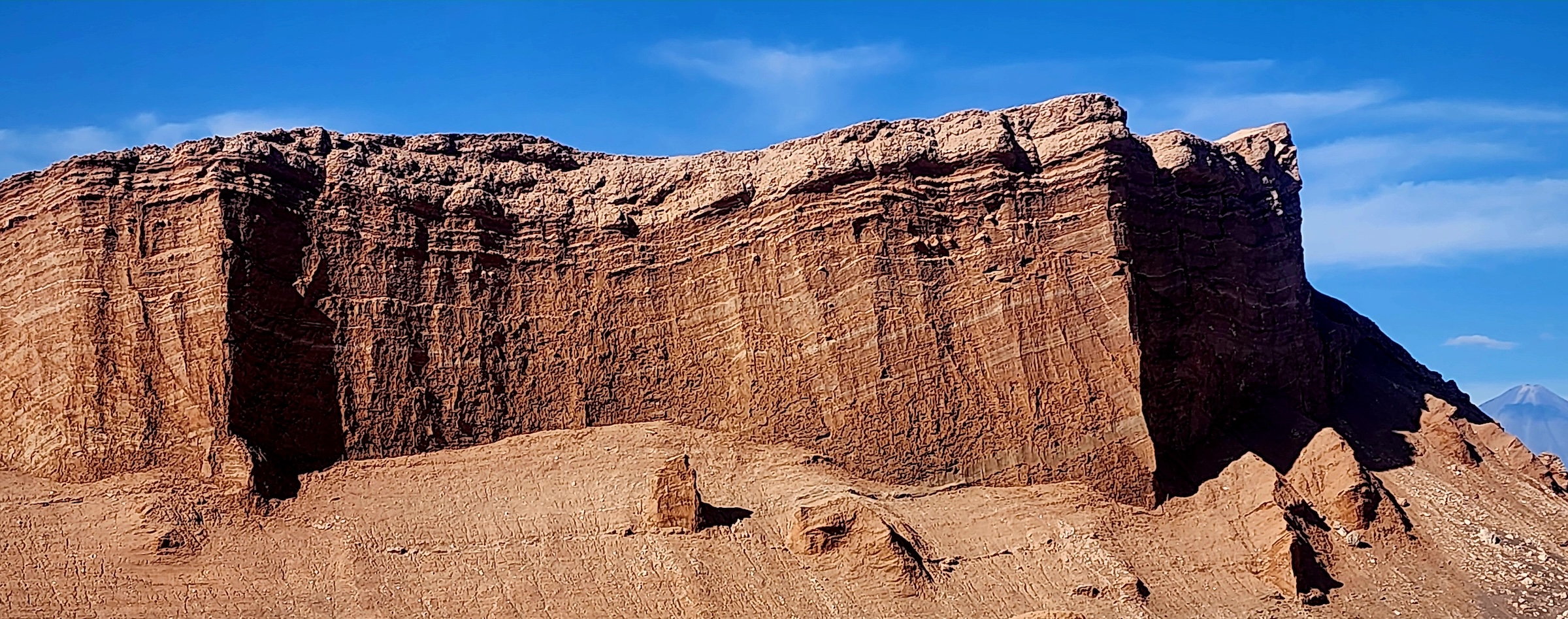
Huge sand dunes that reminded me of the Namid desert in Namibia.
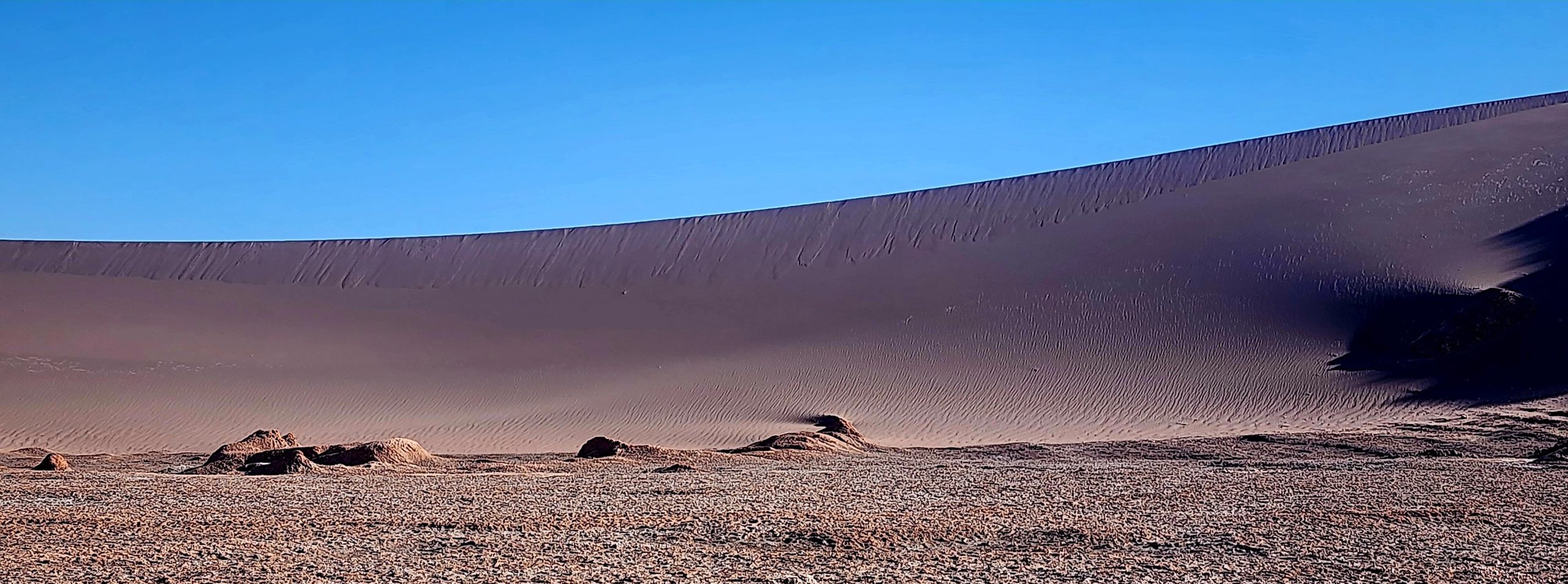
A number of rock formations have been given distinct names like The Three Marys seen here.
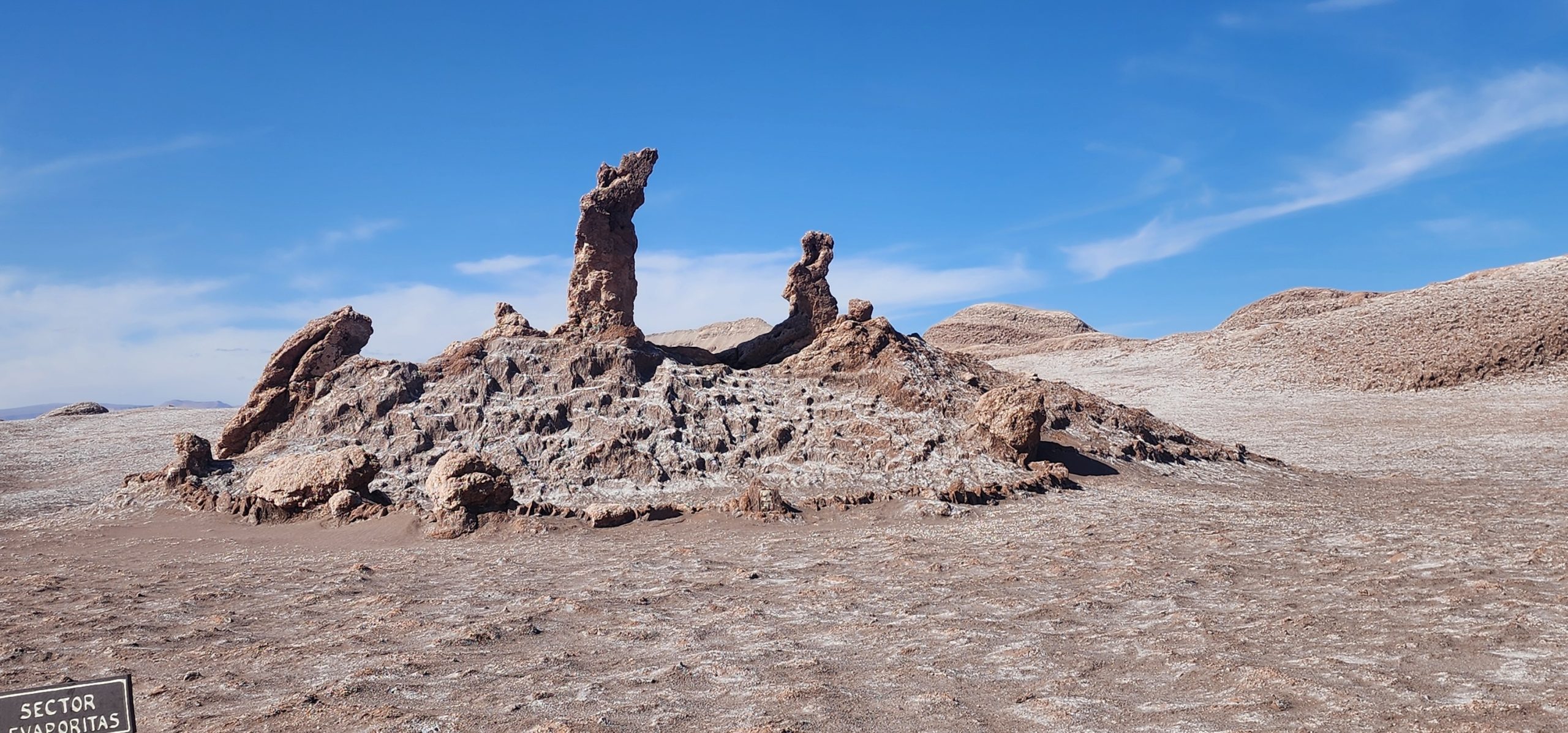
There are a number of places where salt has created very photogenic patterns.
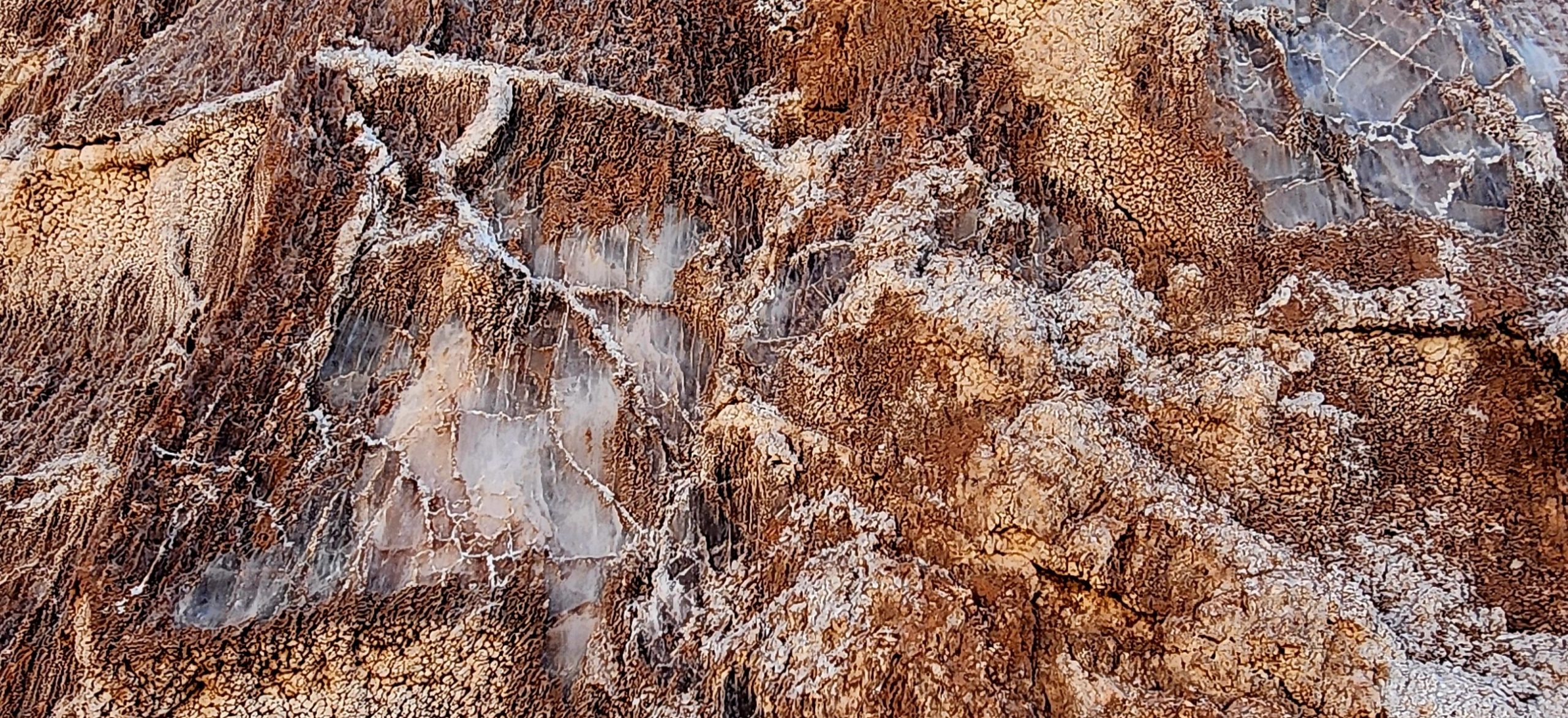
As the sun begins to go down, Valentin asks us all to sit quietly and listen to the rock walls talk – seriously.
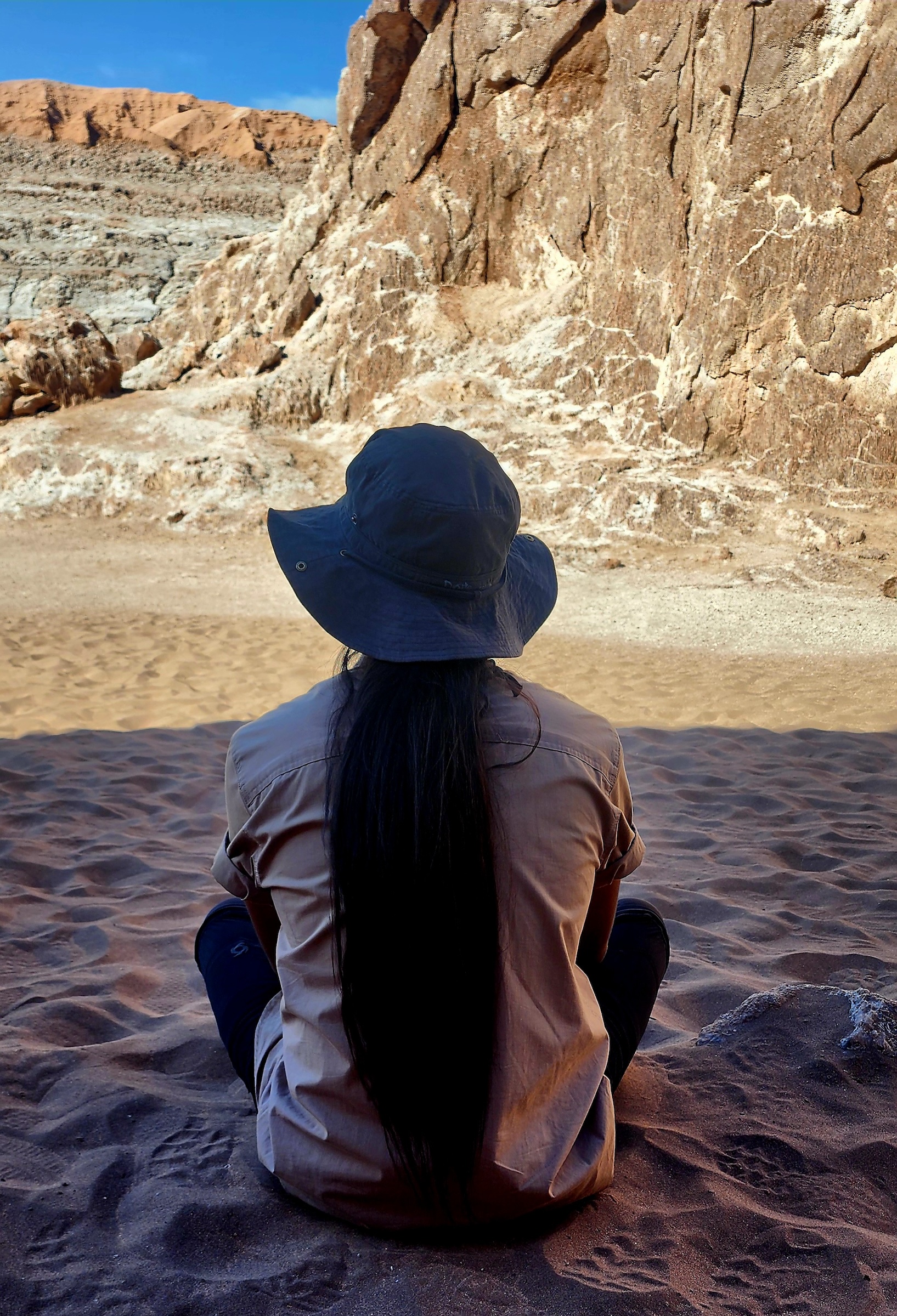
And they do. This is something I cannot describe, you’ll just have to come here for yourself to experience it.
This wonderful day that started at El Tatio and ends at the Valley of the Moon is one that we will all long remember.
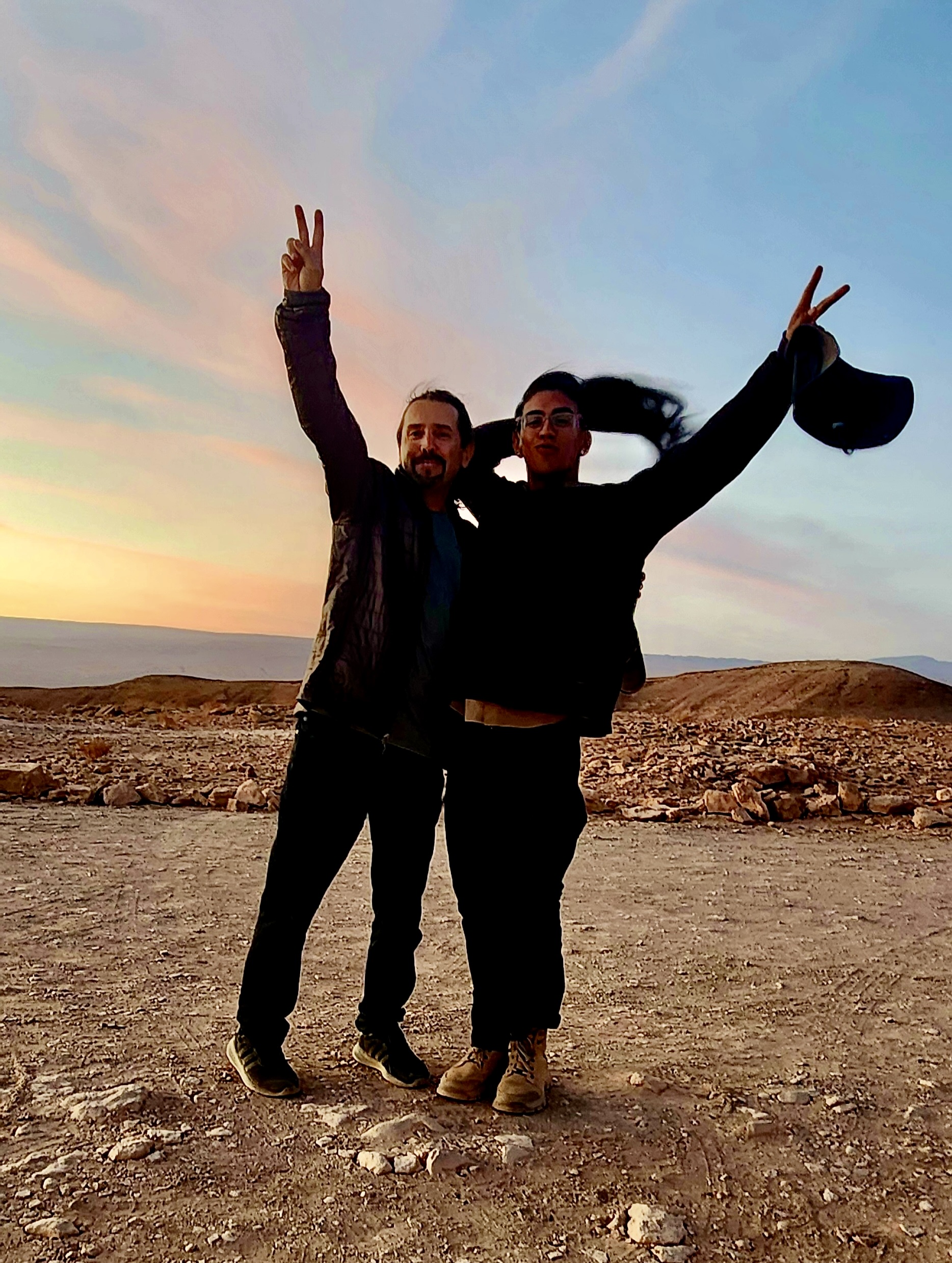
Tomorrow is another travel day as we head back to Santiago where we will overnight before departing the next day for the epic conclusion to our journey on Rapa Nui. Hope you’ll join us.

